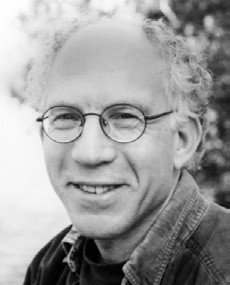Lessons learned from this band of brothers
Parashat Vayigash
My first four years in Israel were spent in Jerusalem in the first half of the 1970s. Whenever I see the name of the portion, Vayigash, my memory takes me back to standing in line in the Supersol when the person at the cash register says: “lageshet lakupa” (approach the cash register) to the people in the line. (Lageshet and Vayigash are two different forms of the same word meaning “to approach” whose root is nun, gimmel, shin). In a supermarket line or almost anywhere in Jerusalem in those days, one would be confronted with Jews from so many different countries that questions of identity were inevitable. It felt like living in a true kibbutz galuyot (an ingathering of the exiles).
Parashat Vayigash contains both issues of identity and the beginning of a long exile in Egypt. Two elements that I love in the Tanakh that are so prominent in this portion are the economy and drama in the language – so much said so powerfully in so few words – and the humanity of the portraits conveyed. We witness a dramatic growth in the personality of Yehuda, and we see Yosef reveal his true identity to his brothers after keeping it hidden for so long. We also see the maturing of Yosef over the course of the chapters of Genesis.
If we go back to Yehuda’s birth, in Genesis 29:35, his mother Leah gives him a name that indicates her simple gratitude to the Eternal One for the birth of this fourth son. The first three sons’ names all reflect some hope that Leah may attain the love of her husband, Ya’akov, via the birth of those sons. With Yehuda’s birth, however, Leah just expresses gratitude. Rather than getting too psychoanalytical and conjecturing about Yehuda’s home life and the relationship between his parents, let’s just note that Yehuda does not demonstrate sterling qualities in his earlier appearances in Genesis. Though he did oppose his brothers when they wanted to kill Yosef back in chapter 37, he does suggest that they sell Yosef to the Ishmaelites. We see his ability to acknowledge that his daughter-in-law, Tamar, was more righteous than he was (in chapter 38) when, having taken her as a prostitute and slept with her (not knowing the woman was Tamar), he’s told that she is pregnant through “prostitution” and says she should be burned. Tamar shows him the seal, cord and staff that he had left with the “prostitute” as a pledge for future payment and recognizes that she was more righteous than he.
Now when Parashat Miketz concludes with the cliff-hanger that Yosef wants Binyamin to be his slave and the rest of the brothers can return to their father back in Canaan, Vayigash opens with Yehuda displaying a sensitivity beyond anything we’ve seen before. Yehuda approaches Yosef and pleads to be the slave in place of Binyamin. He cannot bear the thought of causing his father, Ya’akov, the kind of pain that the loss of Binyamin would entail. It’s clear that Ya’akov has favored the sons he had with Rachel (Yosef and Binyamin) above the others. Instead of displaying jealousy over that favoritism, Yehuda is filled with compassion for his father.
In seeing Yehuda’s love for their father and his willingness to replace Binyamin as Yosef’s slave, Yosef is no longer able to control himself and reveals his identity to his brothers. He speaks to them in Hebrew which he hitherto had pretended he didn’t understand (having an interpreter translate their words to him) and cries openly before his brothers. Yosef does not feel resentment for his brothers despite all the difficulties he has endured, beginning with being sold to the Ishmaelites. He sees it all as God’s work behind the scenes. Yehuda and Yosef have both grown and evolved a great deal.
This story brings to mind one of my favorite Hassidic anecdotes. It is the well-known expression of Reb Zusya who said that when it was time for him to meet his maker at the end of his life, he wasn’t worried that the Master of the Universe would ask him why he wasn’t Moshe Rabbeinu (Moses our Rabbi), rather he was concerned that the Ribbono Shel Olam (the Master of the Universe) would ask him why he wasn’t Zusya.
Who we are and what we have inside us is not a simple or an obvious thing. How do we discover our own depths unless we give ourselves up to that exploration? The challenges of life can be moments of growth. We may surprise ourselves by how we respond.
The entire story of the interaction between Yosef and his brothers can be perceived differently from the perspective of each of the individuals involved. Probably too often, we view events from our own angle without sufficiently looking considering the perspective of the other people involved. Part of the impact and power of the confrontation between Yehuda and Yosef comes from Yehuda’s ability to see what will transpire from the way it will impact their father. Yosef also looks beyond himself and is concerned about how his brothers will feel after they leave his presence; he does not want them to be angry with each other for what they did to Yosef years earlier.
As my wife, Shoshana, reminds me, quoting Karen Armstrong, so much of the book of Genesis from the incident with Cain and Abel to the end involves learning that we are our “brother’s” keepers.
Shabbat Shalom!
Rabbi Mark Elber is the spiritual leader of Temple Beth El in Fall River. He is the author of the recently-published “The Sacred Now: Cultivating Jewish Spiritual Consciousness” and “The Everything Kabbalah Book.”








